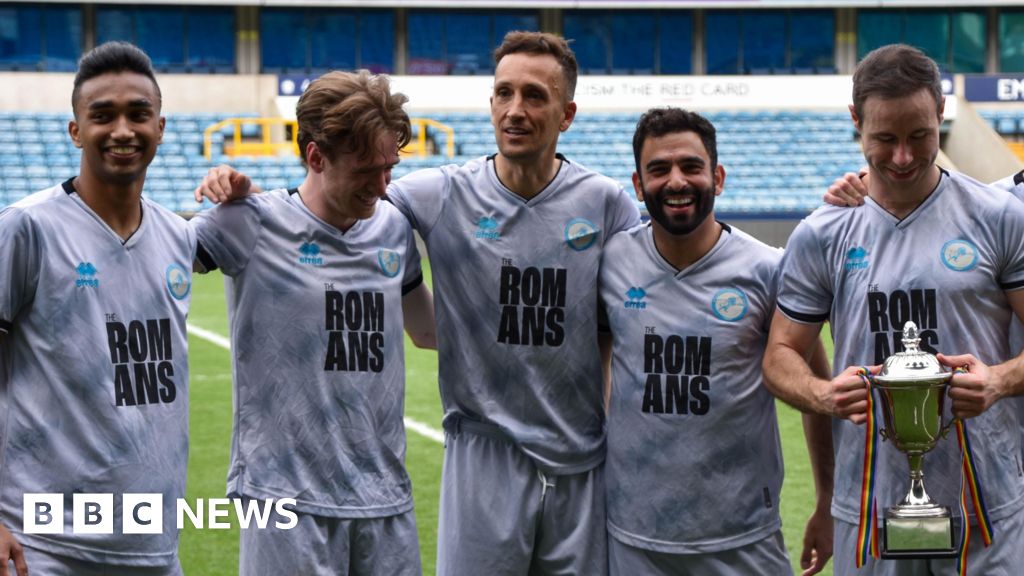'Our grassroots football club was living on a week-to-week basis'

'Our club was living on a week-to-week basis'50 minutes ago Share Save William Wandji BBC London Share SaveMillwall Romans Millwall Romans have two grassroots teams: Romans and Pride"We were pretty much living on a week-to-week basis," says Paul Loding, captain and chairman of a grassroots football team in south-east London. "It was expensive to rent the pitch, which was poor quality. Having to find a referee that you've got to pay for, even supplying kits and footballs. It is too much without adequate funding." Grassroots football generates more than £1bn a year to London yet many clubs say they are lacking sufficient funds to support their activities. According to a survey conducted last year by Net World Sports, 70% of grassroots clubs across England and Wales were struggling to make ends meet.There are 950 grassroots football clubs in the capital, which make up about 5,500 teams. They engage approximately 70,000 registered players including 30,000 youth participants and 650 players with disabilities, according to the London Football Association (FA). The organisation estimates that they bring in a combined £605m in adult social care value and £105m in youth social value, along with the £1bn in direct economic value.Chairman and captain Paul Loding said his club was lucky to have the support of Millwall Community TrustMr Loding said his team, which began in 2006 as London Romans, used to rely heavily on player contributions to stay afloat. However, in 2020 the LGBTQ+ inclusive football club partnered with Millwall Community Trust and is now known as Millwall Romans FC. "The cost of everything has gone up so much in the last few years and we are now in a really lucky position that we do have the backing of Millwall," Mr Loding said. "Providing a grassroots club is nearly impossible with the costs involved."Millwall Romans The grassroots club used to rely heavily on player contributionsThe collaboration provides essential support, including access to better facilities and resources such as the use of Millwall FC kits and home ground. The club trains twice a week at St Paul's Sports Ground in Rotherhithe. Beyond the pitch, it engages with local schools and participates in events like London Pride to build community engagement.London FA Paul Bickerton, CEO of the London FA, says pitch access and cost is a barrier to the sportRising pitch rental costs have strained other grassroots clubs' resources too. Paul Bickerton, CEO of London FA, believes collective action is needed to support the sport. "The big challenge that clubs come back to me with all the time is accessibility of facilities," Mr Bickerton said. "Getting the right facility at the right time, and then the cost of it, that's undoubtedly the barrier."The London FA's strategy for 2024 to 2028, titled London For All, aims to enhance grassroots football across the capital. Objectives include developing and improving facilities, and boosting playing choice and experience. "We've got a target by 2028 to get nine new 3G [third generation grass] facilities in, and we're making good progress against that target," Mr Bickerton said. The strategy also focuses on building a network of volunteers, coaches, and referees to support the game's infrastructure. The London FA hopes the strategy marks a step forward in tackling the challenges facing grassroots football in the capital.Listen to the best of BBC Radio London on Sounds and follow BBC London on Facebook, X and Instagram. Send your story ideas to hello.bbclondon@bbc.co.uk









